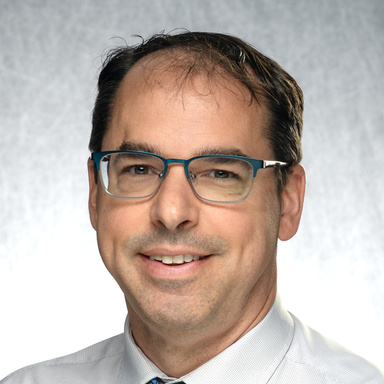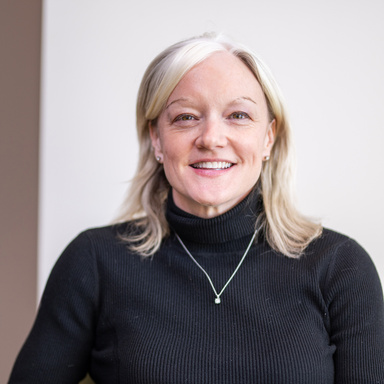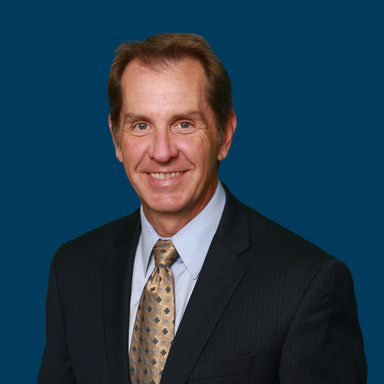These opinions from Mark Burkard, MD, PhD, Mary Charlton, PhD, and Bradley Hiatt, DO, were originally published Nov. 22, 2025, in the Des Moines Register.
If you live in Iowa, you’ve probably seen news stories about cancer in our state. The headlines can be upsetting — cancer rates are rising, and people are trying to figure out why.
But there’s good news, too. Right now, more people and organizations than ever before are working together to fight cancer in Iowa. Across the state, teams are following a strong action plan created by the Iowa Cancer Consortium.
Here are some ways these teams are making a difference:
Research and education across Iowa
Researchers at the University of Iowa are studying what types of cancers are most common in our state and potential risk factors. We have identified that prostate, breast, lung, and melanoma cancers are the greatest drivers of increasing cancer rates in our state.
This research is helping local communities take action. Over the past year, hundreds of Iowans attended events at schools, community centers, and online to learn how cancer affects their county. These events are part of the Cancer in Iowa: 99 Counties Project, led by the Iowa Cancer Registry and the University of Iowa College of Public Health.
So far, 40 counties have hosted these sessions. Many communities are using what they learned to improve cancer prevention efforts.
Getting cancer care close to home
Research and education help with prevention and early detection, but we also need better access to treatment.
Thousands of Iowans are diagnosed with cancer each year, and many others are survivors who still need care. For people in rural areas, traveling long distances for treatment can be hard — and it can negatively affect their health. Studies show that rural Iowans have higher death rates from cancer than those in cities.
That’s why University of Iowa Health Care Holden Comprehensive Cancer Center is working to bring better cancer care closer to home through a variety of ways:
- Expanding education and outreach programs
- Supporting rural hospitals and cancer providers
- Providing cancer care closer to home through Mission Cancer + Blood, part of UI Health Care, a cancer practice serving Iowa for 45 years
One major effort is the Iowa Cancer Affiliate Network (I-CAN). Through I-CAN, experts from Holden help rural hospitals grow their cancer programs and offer comprehensive, high-quality cancer care to their patients. They work with local care teams, offer training, and help set up services like palliative care and genetic counseling.
Six hospitals across the state are officially part of the I-CAN grant:
- Greater Regional Health (Creston)
- Mahaska Health (Oskaloosa)
- Shenandoah Medical Center (Shenandoah)
- Southeast Iowa Regional Medical Center (Burlington)
- Spencer Hospital (Spencer)
- St. Anthony Regional Hospital (Carroll)
Holden also recently expanded access to tumor boards and grand rounds for doctors across Iowa. Tumor boards are meetings where cancer experts talk about the best treatment options for patients. Grand rounds are educational sessions about new developments in cancer care. Now all Iowans have access to Holden expertise no matter who they see for cancer care.
Cancer care is changing rapidly, and having resources that allow cancer experts to tap into their collective knowledge is critical to improving outcomes in Iowa.
Working together for better care
Holden is the only cancer center in Iowa with a comprehensive designation from the National Cancer Institute (NCI), a distinction held by fewer than 5% of cancer centers nationwide. This means Holden is responsible for serving the whole state through advanced research, clinical trials, and community programs.
Recently, UI Health Care teamed up with Mission Cancer + Blood. Mission has more than 20 locations and some of the most experienced cancer doctors in Iowa. Now, these doctors are integrated with seamless access to Holden’s resources, support, and a shared electronic health record.
With the power of our combined strengths and expertise, we realized we could do more together. In less than a year, we have started laying out the foundation for a statewide cancer care network aimed at keeping high-quality cancer care local for Iowans.
Developing a network across the entire state is no easy task, and it doesn’t happen overnight. It requires clinical integration, community relationships, and data infrastructure.
As our organizations become more integrated, more Iowans will have better access to comprehensive services, shortened time between diagnosis and treatment for rare and difficult cancers, and expanded options for the latest therapies.
Clinical trials: A key to the future
Cancer care is changing fast. Many medications prescribed today were, until very recently, only available via clinical trials. To ensure Iowa stays on the cutting edge of cancer care, we must continue investing in clinical trials.
Part of our vision for a statewide cancer network is to make sure all Iowans have improved access to clinical trials, close to home. For some patients, a clinical trial might be their best hope at a cancer-free life.
Holden and Mission both had strong clinical trial programs before we joined forces. Now, we’re working together to offer even more trials across the state. Our first joint clinical trials started this summer, and more are on the way.
A shared mission
These efforts are just part of the bigger picture. Many other hospitals and organizations in Iowa are also working hard to improve cancer care, as well as bring awareness and prevention to the forefront.
To truly beat cancer in Iowa, we all need to work together — across communities, hospitals, and organizations. By joining forces, we can reduce the pain and suffering caused by cancer in our state and build a healthier future for all Iowans.


